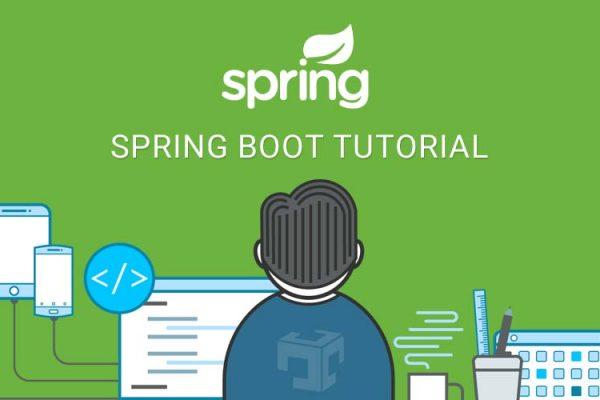【注】本文译自: https://www.tutorialspoint.com/spring_boot/spring_boot_interceptor.htm
在以下两种情况下,可以在 Spring Boot 中使用拦截器来执行操作:
- 发送请求到控制器之前
- 发送响应到客户端之前
譬如,可以使用拦截器在发送请求到控制器之前添加请求头,并在发送响应到客户端之前添加响应头。
要用拦截器,你需要创建 @Component 类,并且要实现 HandlerInterceptor 接口。
下面是使用拦截器要知道的三个方法:
- preHandle() 方法:用于在发送请求到控制器之前执行操作。这个方法应当返回 true 以响应客户端。
- postHandle() 方法:用于在发送响应到客户端之前执行操作。
- afterCompletion() 方法: 用于在请求和响应完成之后执行操作。
观察以下代码以加深理解:
@Component
public class ProductServiceInterceptor implements HandlerInterceptor {
@Override
public boolean preHandle(
HttpServletRequest request, HttpServletResponse response, Object handler) throws Exception {
return true;
}
@Override
public void postHandle(
HttpServletRequest request, HttpServletResponse response, Object handler,
ModelAndView modelAndView) throws Exception {}
@Override
public void afterCompletion(HttpServletRequest request, HttpServletResponse response,
Object handler, Exception exception) throws Exception {}
}还要通过 WebMvcConfigurerAdapter 用 InterceptorRegistry 注册这个拦截器:
@Component
public class ProductServiceInterceptorAppConfig extends WebMvcConfigurerAdapter {
@Autowired
ProductServiceInterceptor productServiceInterceptor;
@Override
public void addInterceptors(InterceptorRegistry registry) {
registry.addInterceptor(productServiceInterceptor);
}
}在下面给出的示例中,我们将要使用后面给出的 GET products API:
Interceptor 类文件 ProductServiceInterceptor.java 如下所示:
package com.tutorialspoint.demo.interceptor;
import javax.servlet.http.HttpServletRequest;
import javax.servlet.http.HttpServletResponse;
import [org.springframework.stereotype.Component;](http://org.springframework.stereotype.component%3b/)
import org.springframework.web.servlet.HandlerInterceptor;
import org.springframework.web.servlet.ModelAndView;
@Component
public class ProductServiceInterceptor implements HandlerInterceptor {
@Override
public boolean preHandle
(HttpServletRequest request, HttpServletResponse response, Object handler)
throws Exception {
System.out.println("Pre Handle method is Calling");
return true;
}
@Override
public void postHandle(HttpServletRequest request, HttpServletResponse response,
Object handler, ModelAndView modelAndView) throws Exception {
System.out.println("Post Handle method is Calling");
}
@Override
public void afterCompletion
(HttpServletRequest request, HttpServletResponse response, Object
handler, Exception exception) throws Exception {
System.out.println("Request and Response is completed");
}
}Application Configuration 类文件把拦截器注册到 Interceptor Registry中,ProductServiceInterceptorAppConfig.java 文件如下:
package com.tutorialspoint.demo.interceptor;
import org.springframework.beans.factory.annotation.Autowired;
import org.springframework.stereotype.Component;
import org.springframework.web.servlet.config.annotation.InterceptorRegistry;
import org.springframework.web.servlet.config.annotation.WebMvcConfigurerAdapter;
@Component
public class ProductServiceInterceptorAppConfig extends WebMvcConfigurerAdapter {
@Autowired
ProductServiceInterceptor productServiceInterceptor;
@Override
public void addInterceptors(InterceptorRegistry registry) {
registry.addInterceptor(productServiceInterceptor);
}
}Controller 类文件 ProductServiceController.java 如下:
package com.tutorialspoint.demo.controller;
import java.util.HashMap;
import java.util.Map;
import org.springframework.http.HttpStatus;
import org.springframework.http.ResponseEntity;
import org.springframework.web.bind.annotation.PathVariable;
import org.springframework.web.bind.annotation.RequestBody;
import org.springframework.web.bind.annotation.RequestMapping;
import org.springframework.web.bind.annotation.RequestMethod;
import org.springframework.web.bind.annotation.RestController;
import com.tutorialspoint.demo.exception.ProductNotfoundException;
import com.tutorialspoint.demo.model.Product;
@RestController
public class ProductServiceController {
private static Map<String, Product> productRepo = new HashMap<>();
static {
Product honey = new Product();
honey.setId("1");
honey.setName("Honey");
productRepo.put(honey.getId(), honey);
Product almond = new Product();
almond.setId("2");
almond.setName("Almond");
productRepo.put(almond.getId(), almond);
}
@RequestMapping(value = "/products")
public ResponseEntity<Object> getProduct() {
return new ResponseEntity<>(productRepo.values(), HttpStatus.OK);
}
}POJO 类文件 Product.java 如下:
package com.tutorialspoint.demo.model;
public class Product {
private String id;
private String name;
public String getId() {
return id;
}
public void setId(String id) {
this.id = id;
}
public String getName() {
return name;
}
public void setName(String name) {
this.name = name;
}
}主 Spring Boot 应用类文件 DemoApplication.java 如下所示:
package com.tutorialspoint.demo;
import org.springframework.boot.SpringApplication;
import org.springframework.boot.autoconfigure.SpringBootApplication;
@SpringBootApplication
public class DemoApplication {
public static void main(String\[\] args) {
SpringApplication.run(DemoApplication.class, args);
}
}Maven build – pom.xml 文件在此:
<?xml version = "1.0" encoding = "UTF-8"?>
<project xmlns = "[http://maven.apache.org/POM/4.0.0](http://maven.apache.org/POM/4.0.0)" xmlns:xsi = "
[http://www.w3.org/2001/XMLSchema-instance](http://www.w3.org/2001/XMLSchema-instance)"
xsi:schemaLocation = "[http://maven.apache.org/POM/4.0.0](http://maven.apache.org/POM/4.0.0)
[http://maven.apache.org/xsd/maven-4.0.0.xsd](http://maven.apache.org/xsd/maven-4.0.0.xsd)">
<modelVersion>4.0.0</modelVersion>
<groupId>com.tutorialspoint</groupId>
<artifactId>demo</artifactId>
<version>0.0.1-SNAPSHOT</version>
<packaging>jar</packaging>
<name>demo</name>
<description>Demo project for Spring Boot</description>
<parent>
<groupId>org.springframework.boot</groupId>
<artifactId>spring-boot-starter-parent</artifactId>
<version>1.5.8.RELEASE</version>
<relativePath/>
</parent>
<properties>
<project.build.sourceEncoding>UTF-8</project.build.sourceEncoding>
<project.reporting.outputEncoding>UTF-8</project.reporting.outputEncoding>
<java.version>1.8</java.version>
</properties>
<dependencies>
<dependency>
<groupId>org.springframework.boot</groupId>
<artifactId>spring-boot-starter-web</artifactId>
</dependency>
<dependency>
<groupId>org.springframework.boot</groupId>
<artifactId>spring-boot-starter-test</artifactId>
<scope>test</scope>
</dependency>
</dependencies>
<build>
<plugins>
<plugin>
<groupId>org.springframework.boot</groupId>
<artifactId>spring-boot-maven-plugin</artifactId>
</plugin>
</plugins>
</build>
</project>Gradle Build build.gradle 文件在此:
buildscript {
ext {
springBootVersion = '1.5.8.RELEASE'
}
repositories {
mavenCentral()
}
dependencies {
classpath("org.springframework.boot:spring-boot-gradle-plugin:${springBootVersion}")
}
}
apply plugin: 'java'
apply plugin: 'eclipse'
apply plugin: 'org.springframework.boot'
group = 'com.tutorialspoint'
version = '0.0.1-SNAPSHOT'
sourceCompatibility = 1.8
repositories {
mavenCentral()
}
dependencies {
compile('org.springframework.boot:spring-boot-starter-web')
testCompile('org.springframework.boot:spring-boot-starter-test')
}你可以使用下面的 Maven 或 Gradle 命令创建可执行的 JAR 文件,运行 Spring Boot 应用:
对于 Maven,使用以下命令:
mvn clean install在 “BUILD SUCCESS” 之后,你可以在 target 目录下找到 JAR 文件:
对于 Gradle,使用以下命令:
gradle clean build在 “BUILD SUCCESSFUL” 之后,你可以在 build/libs 目录下找到 JAR 文件:
可以使用以下命令运行 JAR 文件:
java –jar <JARFILE>此刻,应用已经在 Tomcat 8080 端口启动了,如下所示:
在 POSTMAN 应用中单击以下 URL,你可以看到下面的结果:
GET API: http://localhost:8080/products
在控制台窗口,你可以看到加在拦截器中的 System.out.println 打印出来的结果,截屏如下:




**粗体** _斜体_ [链接](http://example.com) `代码` - 列表 > 引用。你还可以使用@来通知其他用户。